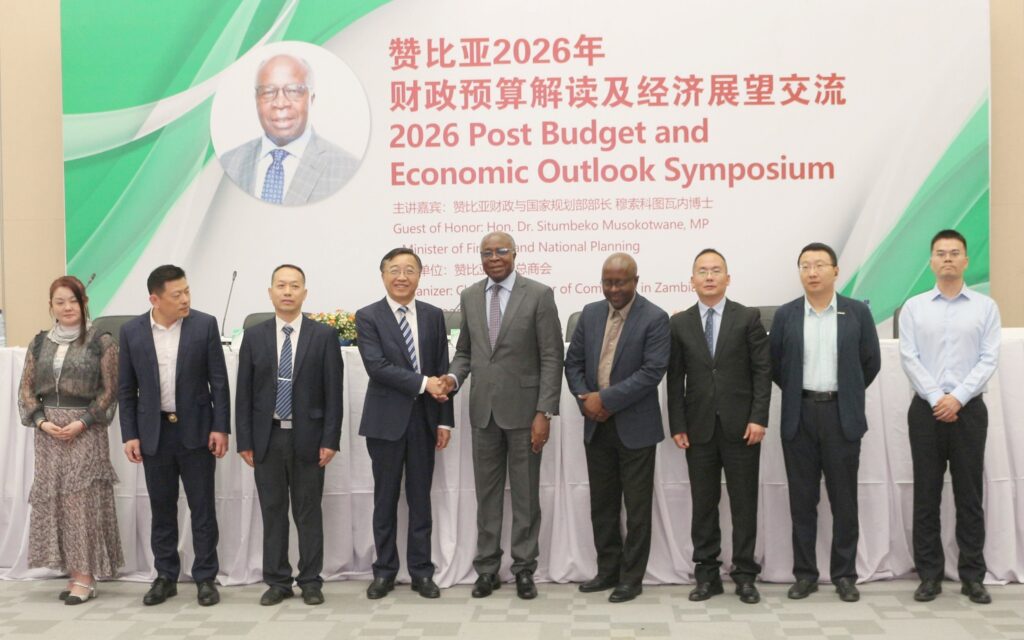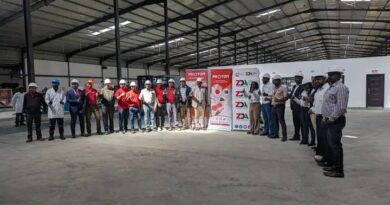Zambia, China Strengthen Economic Ties After Premier Li’s Visit
Zambia has strengthened its economic partnership with the People’s Republic of China through a high-level Post-Budget and Economic Outlook Dialogue with the Chinese Chamber of Commerce and Industry, held on Friday at the Mulungushi International Conference Centre in Lusaka.
The meeting followed the successful State Visit by His Excellency Li Qiang, Premier of the State Council of China, whose engagements with President Hakainde Hichilema reaffirmed China’s support for Zambia’s debt-resolution process and opened new avenues for long-term industrial and economic cooperation. The Dialogue provided a platform to translate these diplomatic commitments into actionable private-sector investment opportunities.
Finance and National Planning Minister Dr Situmbeko Musokotwane said the Government had deliberately aligned the Dialogue with Premier Li’s visit to ensure coherence between diplomatic progress, fiscal planning, and Zambia’s development goals.
He noted that Zambia is moving from macroeconomic stabilisation toward structural transformation, with the 2026 National Budget serving as the final bridge of the 8th National Development Plan. Key national priorities—manufacturing, energy security, infrastructure upgrades, digital expansion, and enhanced regional trade—mirror areas where Chinese enterprises already have strong operational capacity.
Dr Musokotwane stressed that the Premier’s visit had set a clear investment tone, reinforcing investor confidence and strengthening Zambia’s long-term economic outlook.
The Minister highlighted the energy sector as both the country’s most urgent constraint and its most promising investment frontier. He noted that Zambia has increased its installed generation capacity from 3,318 MW in 2021 to 3,886 MW in 2025, with an additional 1,800 MW expected in 2026 through new solar and thermal projects.
He also referenced the establishment of a K500 million Electricity Fund aimed at attracting private investors into power generation, transmission, and distribution—an area strongly emphasised during the Premier’s State Visit.
The Minister encouraged Chinese firms to support Zambia’s manufacturing ambitions by investing in value addition, industrial supply chains, and the broader regional market.
He highlighted the country’s strategic location along revitalised transport corridors such as the Lobito Corridor and TAZARA, which position Zambia as an emerging export hub for processed goods and industrial products.
Chinese Chamber of Commerce President Mr Li Tie praised Zambia’s predictable policy environment and reform-driven economic strategy. He cited Zambia’s restructuring of 94% of its external debt, projected GDP growth of 6.4%, targeted inflation of 6–8%, and the planned fiscal deficit of 2.1% as indicators of a stable and attractive investment destination.
Mr Li highlighted opportunities across renewable energy, digital technology, education, healthcare, agro-processing, and public–private partnership projects.
The Dialogue identified several priority areas expected to shape future Zambia–China cooperation, including:
- Renewable energy, transmission upgrades, and grid expansion
- Manufacturing in automotive components, copper fabrication, textiles, and food processing
- Digital infrastructure, including rural broadband, satellite services, and fintech
- Transport and logistics investments through the Lobito Corridor and TAZARA
- Expanded public–private partnerships in infrastructure, power, and social services
These areas align strongly with commitments made during Premier Li Qiang’s State Visit and Zambia’s long-term development objectives.
Closing the meeting, Dr Musokotwane reaffirmed that collaboration between Government, the private sector, civil society, and international partners remains essential for sustainable growth. He encouraged Zambian businesses to pursue joint ventures with established Chinese firms, noting the importance of technology transfer and skills development.
He emphasised that Zambia’s stable policy environment, forward-looking budget, and expanding investment opportunities position the country to achieve strong, inclusive, and competitive growth.
“Let us work together, invest together, and build together,” Dr Musokotwane said, calling on all stakeholders to help unlock Zambia’s full economic potential.



